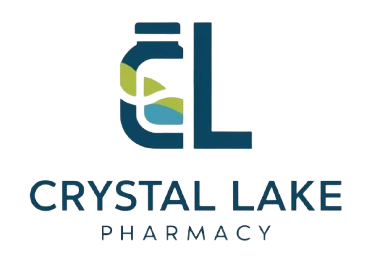Finding the right pharmacy for your family member means looking at more than just location. The right pharmacy can make a big difference in your family’s health care experience through better service, personalized attention, and specialized services. This guide will help you pick a pharmacy that truly cares for your loved one’s health needs.
Why Your Pharmacy Choice Matters
Your pharmacy choice affects more than just picking up pills. On average, patients visit pharmacies 20 times per year, compared to only 4 visits to a primary care physician. This means your pharmacist becomes a key part of your family’s health team.
Studies show that people who use independent pharmacies often have better medication adherence rates, especially for diabetes and other chronic conditions. According to research published by the National Center for Biotechnology Information, independent pharmacy users had significantly higher medication adherence rates compared to chain pharmacy users. The pharmacy you choose can help your family member stay healthier by making sure they take their medicines correctly.
Location and Hours: Finding What Works
Think About Daily Life
Pick a pharmacy that fits your family’s routine. 94 percent of consumers choose their primary pharmacy based on location and convenience. But convenience means different things to different people.
Consider these questions:
- Is it close to home or work?
- Are the hours good for your schedule?
- Can you get there easily when your family member is sick?
- Do they offer delivery services?
Emergency Access
Make sure your chosen pharmacy can help during emergencies. Some pharmacies stay open late or have 24-hour locations nearby. Others offer emergency refill services when you’re out of town.
Services That Make a Difference
Basic Services Every Pharmacy Should Offer
All good pharmacies should provide:
- Fast prescription filling
- Insurance processing
- Generic medication options
- Basic health screenings
Advanced Services to Look For
The best pharmacies go beyond basic services:
Medication Therapy Management: Medicare Part D plans are required to include medication therapy management programs to help patients get the most from their medications, as outlined by the Centers for Medicare & Medicaid Services. This service helps catch dangerous drug interactions and makes sure all your family member’s medicines work well together.
Compounding Services: Some family members need special forms of medication. Compounding allows pharmacies to create custom medications for allergies, sensitivities, or when someone can’t swallow pills.
Vaccination Services: Many pharmacies now offer flu shots, COVID vaccines, and other immunizations. This saves trips to the doctor and keeps your family protected.
Cost Considerations and Insurance
Understanding Your Coverage
Before choosing a pharmacy, check what your insurance covers. Medicare plans have contracts with “in-network pharmacies” that offer discounted prices for members, as explained by Medicare.gov. Using an out-of-network pharmacy can cost much more.
Call your insurance company or check their website to find:
- Which pharmacies are in your network
- Your copay amounts at different pharmacies
- Whether you can get 90-day supplies
- Mail-order options
Comparing Costs
Prescription drug prices in the United States are significantly higher than in other nations, with prices averaging 2.78 times those seen in other countries according to research by the RAND Corporation. This makes cost comparison even more important.
Money-Saving Tips:
- Ask about generic alternatives
- Compare cash prices to insurance copays
- Look for pharmacy discount programs
- Check if the pharmacy offers price matching
Independent pharmacies often offer lower prices on medications than chains, with more willingness to negotiate.
Customer Service and Personal Care
What Good Service Looks Like
Independent pharmacies received the highest overall customer satisfaction scores, with a score of 914 out of 1,000 possible points. Good service includes:
- Pharmacists who know your name
- Staff who remember your family member’s needs
- Clear explanations about medications
- Help with insurance problems
- Follow-up calls to check on your family member
Building Relationships
Over 50% of patients who filled prescriptions at independent pharmacies said their pharmacist knew them by name, compared to only 14% at chain pharmacies. This personal touch can make a big difference in your family member’s care.
A good pharmacist will:
- Ask about allergies and other medications
- Explain side effects and interactions
- Suggest ways to remember to take medications
- Work with your family member’s doctors
Technology and Modern Features
Digital Tools That Help
Modern pharmacies offer helpful technology:
- Mobile apps for refills and reminders
- Text alerts when prescriptions are ready
- Online prescription history
- Digital receipt storage
People who use pharmacy mobile apps report satisfaction scores up to 23 points higher than non-users.
Delivery and Pickup Options
Many pharmacies now offer:
- Free home delivery
- Curbside pickup
- Automatic refill programs
- Prescription synchronization to align all medications
Independent vs Chain Pharmacies
Independent Pharmacy Benefits
A Consumer Reports survey found that 90% of patients rated independent pharmacies to be “excellent” or “very good” in categories like speed, accuracy, courtesy, helpfulness, and knowledge.
Independent pharmacies often provide:
- More personalized attention
- Faster service with shorter wait times
- Better medication counseling
- More flexibility in services
- Support for local community
Chain Pharmacy Benefits
Chain pharmacies offer:
- More locations and longer hours
- Standardized services across locations
- Often lower prices due to buying power
- More technology options
- Consistent experience
Only 3% of patients at independent pharmacies said they had to wait “a long time” for service, compared to 18% at chain pharmacies.
Special Needs and Considerations
For Older Adults
Older family members may need:
- Medication packaging help
- Regular medication reviews
- Easy-to-open bottles
- Large print labels
- Delivery services
For Chronic Conditions
People taking multiple medications benefit from pharmacies that offer medication synchronization, allowing all prescriptions to be picked up on the same day each month.
For Children
Family members with children need:
- Liquid formulations
- Flavoring options
- Child-resistant packaging
- Dosing syringes and cups
Questions to Ask Before Choosing
Call or visit potential pharmacies and ask:
- Service Questions:
- What are your hours?
- Do you offer delivery?
- How long do prescriptions usually take?
- Do you provide medication counseling?
- Cost Questions:
- Do you accept my insurance?
- What are your generic pricing options?
- Do you offer any discount programs?
- Can you help with prior authorizations?
- Safety Questions:
- How do you prevent medication errors?
- What happens if I have questions after hours?
- Do you keep complete medication records?
- How do you handle drug interactions?
Red Flags to Avoid
Stay away from pharmacies that:
- Don’t accept your insurance
- Have consistently long wait times
- Don’t offer medication counseling
- Have poor online reviews about accuracy
- Don’t maintain complete medication records
- Rush you during consultations
Making the Switch
How to Transfer Prescriptions
Chain stores frequently offer discounts for transferring prescriptions, but it’s safest to fill all prescriptions at one pharmacy for complete medication monitoring.
Transfer Steps:
- Choose your new pharmacy
- Bring your prescription bottles
- Provide insurance information
- Ask the new pharmacy to handle the transfer
- Update your doctors with the new pharmacy information
What to Bring
When switching pharmacies, bring:
- All current prescription bottles
- Insurance cards
- List of over-the-counter medications
- Allergy information
- Contact information for all your doctors
Building a Long-Term Relationship
Why Consistency Matters
Using one pharmacy for all prescriptions allows you to receive the greatest benefit from drug interaction screening, since one pharmacy has all your medication records.
Getting the Most from Your Pharmacy
To build a strong relationship:
- Use the same pharmacy for all family members
- Keep your medication list updated
- Ask questions about new prescriptions
- Follow up on any problems
- Give feedback about your experience
Special Programs and Services
Medication Therapy Management Programs
The global medication therapy management market is projected to reach $226.48 million by 2028, showing growing recognition of its importance. These programs help:
- Identify medication problems
- Improve adherence
- Reduce dangerous interactions
- Lower healthcare costs
Chronic Disease Management
Many pharmacies now offer support for:
- Diabetes monitoring
- Blood pressure checks
- Cholesterol screening
- Weight management programs
Final Thoughts
Choosing the right pharmacy for your family member is about more than convenience. It’s about finding a healthcare partner who knows your family, cares about your health, and provides the services you need at prices you can afford.
About 15.1 million Americans nationwide rely on independent pharmacies for optimal access to medications, according to research published in the National Center for Biotechnology Information, showing how important local pharmacies are to healthcare access.
Take time to research your options, ask questions, and visit potential pharmacies before making your choice. The right pharmacy will make managing your family member’s health easier and more effective.
Ready to find personalized pharmacy care for your family? Contact Crystal Lake Pharmacy today to learn how we can help with your family’s medication needs, from compounding services to medication therapy management. Our experienced team is here to provide the personalized care your family deserves.

